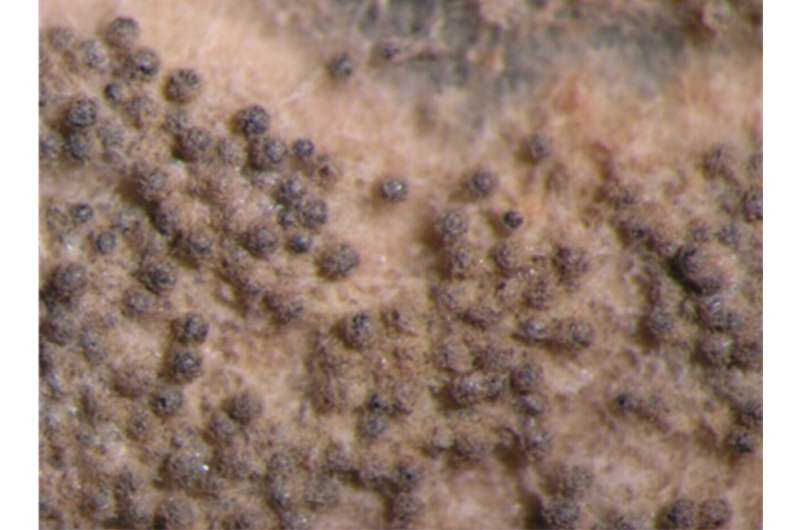Make fungi think they're starving to stop them having sex, say scientists

Tricking fungi into thinking they're starving could be the key to slowing down our evolutionary arms race with fungal pathogens, as hungry fungi don't want to have sex.
That's the conclusion from new research at the University of Bath which for the first time characterised a group of receptors unique to fungi, which prevent them from reproducing sexually.
The research team, from the University of Bath and University of São Paulo—Ribeirão Preto, believe these G-Protein Coupled Receptors (GPCRs) could potentially be a target to slowdown fungi's evolution and the spread of increased virulence and resistance to antifungal chemicals.
Aspergillus fungi only like to have sex when they are well fed and in the dark. Sexual reproduction recombines the DNA of parents to create genetically diverse offspring, which are rapidly disseminated throughout the environment as spores.
This diversity and spread is critical for fungi to adapt to new environments, either promoting disease or evolving antifungal resistance.
Activating the receptors and making the fungi believe they are starving could prevent fungi having sex and therefore slow down their evolution. This could have applications for controlling fungal pathogens in agriculture, as well as in our hospitals.
Dr. Neil Brown, from Department of Biology & Biochemistry at the University of Bath, said: "These receptors could be a route to inhibit fungal sex, which may improve the sustainability of disease control. We spend large amounts of time and money developing resistant crops and antifungal chemicals, but there are examples where within a few years of their use fungi have overcome resistant crops or become tolerant of the antifungals.
"Here we could slow down our arms race with the fungal pathogens and therefore increase the shelf life of the resistant crops and antifungals we have invested in. Fungi are excellent at rapidly evolving and spreading through our ecosystem. However, we are slow at producing resistant crops and new antifungal compounds, so they're always eventually going to overcome what we have, but here we could potentially slowdown that cycle to our benefit."
Professor Gustavo Goldman, from the University of São Paulo, Ribeirão Preto, said: "This research is a long-term collaboration between our laboratories in Brazil and the UK, highlighting the importance of international collaboration to tackle an important basic biology problem that can have repercussions in the control of human and plant pathogenic fungi."
The scientists studied the model fungus Aspergillus nidulans. The particular GPCRs they studied are found across most fungi, but are not present in plants, animals or humans, which makes them a good potential target for antifungal agents.
The research team want to continue to study these fungal receptors, and others which promote sexual reproduction in several fungal pathogens. Aiming to understand the molecular and structural details of how these two systems work, hoping to eventually develop reliable ways to inhibit fungal sex.
The research is published in PLOS Genetics.
More information: Thaila Fernanda dos Reis et al, GPCR-mediated glucose sensing system regulates light-dependent fungal development and mycotoxin production, PLOS Genetics (2019). DOI: 10.1371/journal.pgen.1008419
Journal information: PLoS Genetics
Provided by University of Bath


















